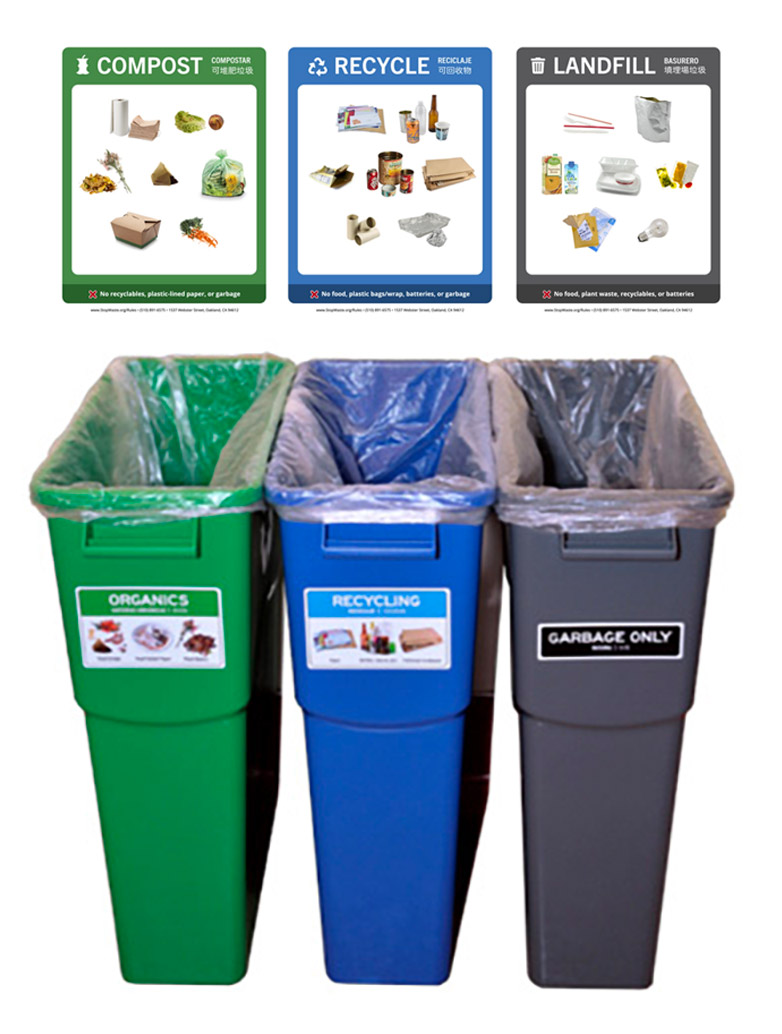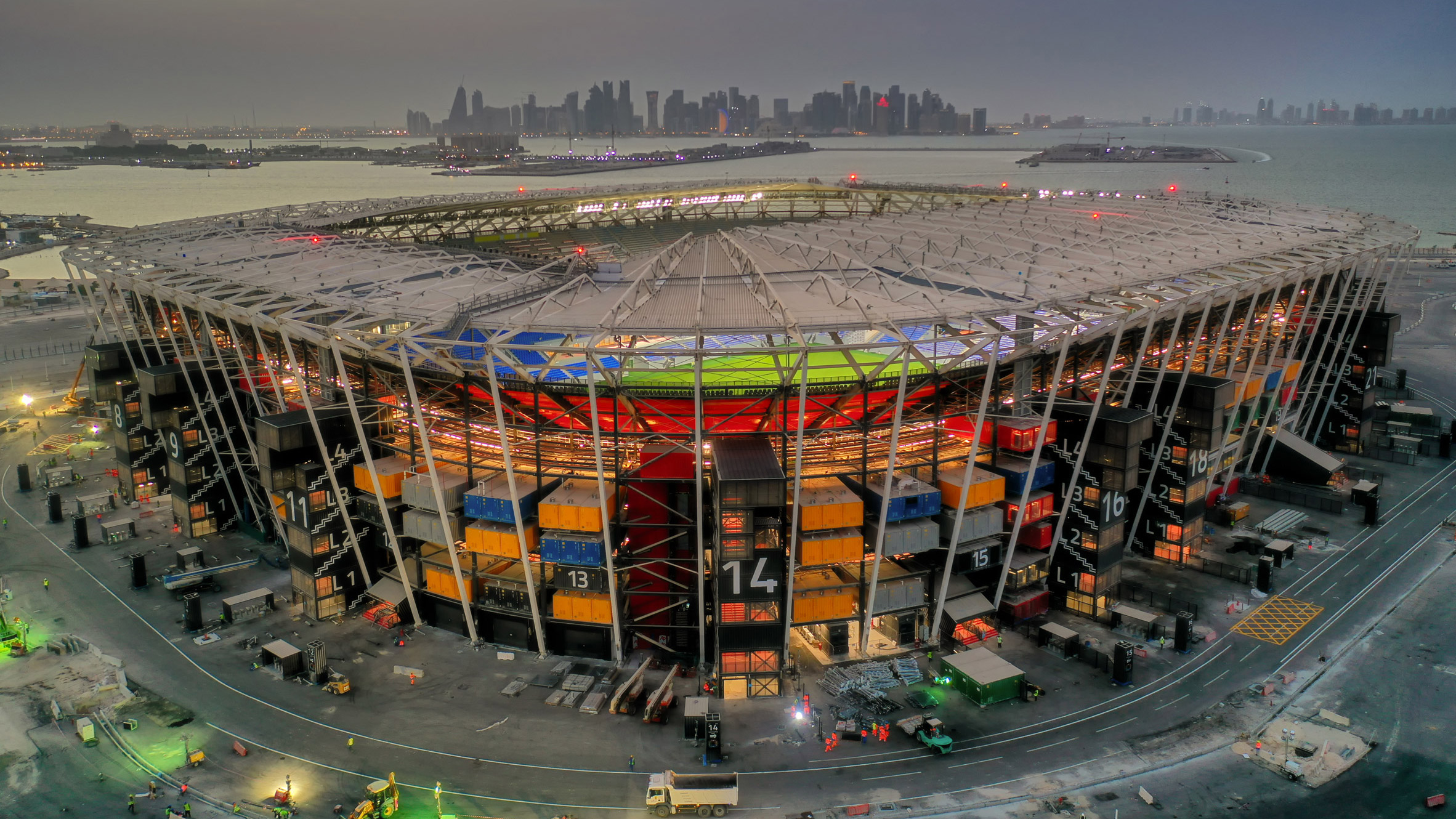On average, events generate 2.5 pounds of landfill waste per person, per day. That adds up fast. A...
Innovative Sustainability Ideas That Could be Implemented at Events
How Organizers and Venues Can Lead the Way to Sustainable Events
The global events industry is a powerful economic force—but it's also a major contributor to climate change. Accounting for approximately 10% of global greenhouse gas emissions, the events sector’s environmental footprint spans far beyond what happens on-site. From energy consumption, international travel and freight shipping to food waste and disposable decor, hosting a large-scale event is like operating a temporary city: building it, powering it, feeding everyone, and then tearing it all down.
Recognizing the urgency of the climate crisis, over 600 stakeholders have signed the Net Zero Carbon Events Pledge, an industry-wide commitment to achieve net-zero carbon emissions across the global events sector by 2050. To meet that ambitious target, we must rethink event sustainability not as a checklist, but as a systems-level opportunity. Much like the built environment, events intersect with global travel, local transportation, hospitality, energy, food and beverage, freight, and material production. These are not isolated concerns—they’re deeply interconnected.
It’s time for a shift in how events are designed and operated. That means reducing carbon emissions, limiting water use, and minimizing waste at every stage. The good news? Two of the most powerful stakeholder groups are already making huge improvements: event organizers and venues. Let’s explore how you can catch up with the most progressive players across the globe—starting today.
For Sustainable Event Organizers: Data-Driven Design and Smarter Choices
If you're organizing an event, the most impactful thing you can do is measure your carbon emissions across the entire value chain. Identifying your hotspots helps prioritize action. Tools like TRACE by isla make it easier to benchmark and improve.
Start by asking your venue for an event-specific sustainability impact report. At minimum, it should cover energy consumption, water usage, and waste generation. Progressive venues are adopting tools like Envire, which automate data collection and deliver accurate reports only days after your event.
Once you have a baseline, here are some practical steps to lower your event’s footprint:

- Rethink single-use service ware: Choose reusable options whenever possible. If you're not ready to go all-in, start small—just swap out single-use cups for reusable ones. Partners like R.Cup, Cup Zero, and Bold Reuse offer scalable solutions. Ask your venue if they already partner with one of these companies or if they have an in-house stock of reusables.
- Skip the swag: Instead of handing out bags of promotional items destined for the landfill, offer to plant a tree for each VIP guest. Want a physical memento? Upcycle your event’s own materials, like turning old tarps into bags or jackets with a partner like Rareform or Rewilder.
- Say no to IKEA: It’s tempting to furnish booths and lounges with low-cost, stylish furniture, but these items are rarely reused. Ban single-use furniture from your show floor and opt to rent everything, from couches to plants to decor.
- Embrace plant-forward menus: Work with your caterer to offer protein-rich, vegetarian meals as the standard. It’s better for the planet and often more cost-effective.

- Ask your venue about waste management: Composting and recycling can’t happen without the right infrastructure. Ensure your venue provides well-labeled waste bins front-of-house, and clarify whether you need to communicate specific waste-sorting instructions to attendees and exhibitors. Ask if front-of-house composting is available for your event to .
For Sustainable Venues: Lead by Example, and Enable Your Clients
Venues play a critical role in setting the standard for sustainability at events and leading by example. The most important step? Measure and share your customers’ environmental performance. While many teams still rely on spreadsheets and manual data entry (which can take up to 15 hours per event), tools like Envire can streamline and automate event-specific impact reporting, saving time and boosting accuracy.
Here are more ways venues can drive sustainable operations:
- Invest in reusable service ware: Stock your kitchens with durable plates, cups, and utensils and ramp up your dishwashing capabilities. Over time, this small investment can drastically reduce waste AND save on disposable service ware costs.

- Offer green menu bundles: Work with your in-house caterer to provide vegetarian and plant-forward meal packages, ideally with local ingredients to cut food miles.
- Grow on-site: If space allows, consider urban agriculture projects—like rooftop gardens or herb walls. Venues like the Javits Center in New York and McCormick Place in Chicago are already doing this, reducing food miles and enhancing ingredient freshness.
- Optimize waste systems: Color-coded, paired waste bins with clear signage are proven to increase proper sorting by event attendees. Research the compost facility where your venue sends your food waste. If they can accept a 10-15% contamination threshold, consider putting compost bins front-of-house, near food service areas.

- Rethink your rooftop: Large roof space? That’s an opportunity. Install solar panels to generate clean, affordable energy long-term. Add a green roof layer to improve insulation, cut your energy bill, absorb storm water, and support biodiversity.
Conclusion: You Can’t Improve What You Don’t Measure
Whether you're hosting an event or providing the space, meaningful change starts with visibility and story-telling. You can’t improve what you don’t measure—so start by tracking energy, water, and waste at each event. With a software like Envire, venues can automate data collection and share actionable, event-specific insights with event organizers. When staff are freed from manual data crunching, they can turn their focus to improving infrastructure, identifying cost-savings opportunities, and ensuring customer satisfaction.
Sustainability doesn’t mean compromising on experience or innovation. On the contrary—it’s a chance to design smarter, create more meaningful connections, and ensure the events industry remains vibrant and viable for generations to come.






Have questions? Reach out to our authors!